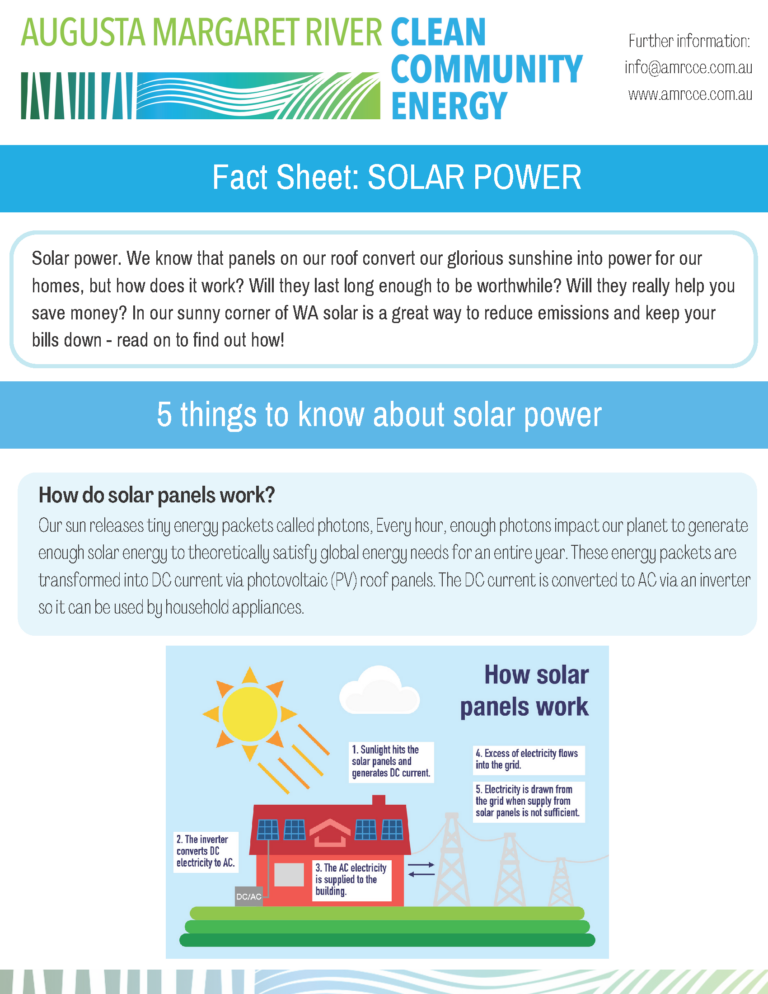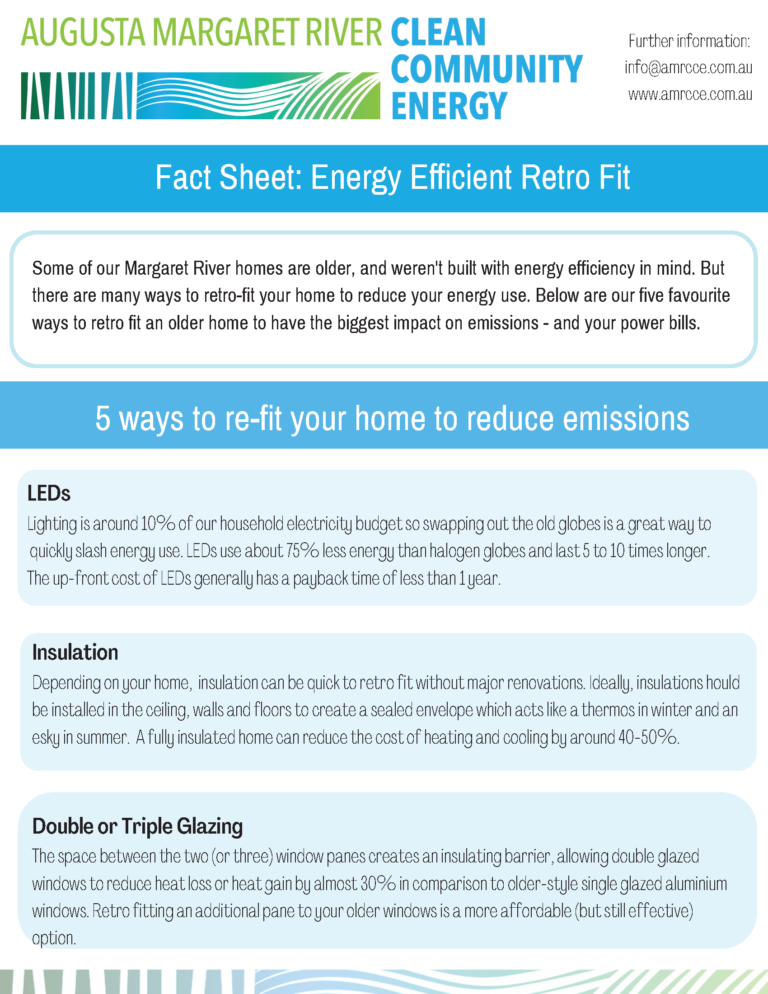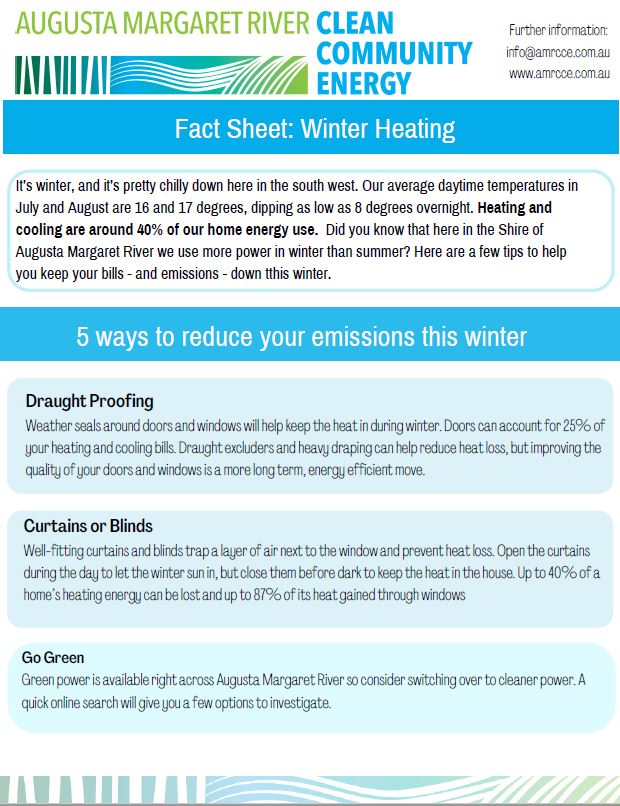Energy Efficiency Tips & Fact Sheets
Lower Your Operating Costs
Energy Savings at Home
- Changing to solar hot water (traditional solar is more efficient than a Heat Pump)
- Installing ceiling insulation (R3+), using well-fitted window coverings
- Using ceiling & portable fans instead of air-con (reverse ceiling fans help in winter too)
- Switching all appliances off at the powerpoint whenever possible (use multi-switch powerboards or Eco Switch)
- Turning off second fridges & freezers
- Using a ‘solar drier’ or airer instead of a tumble drier
- Insulate hot water pipes with lagging. It’s easy & inexpensive!
- Set your fridge to 5°C. Set your freezer to -16°C. Invest in a fridge/freezer thermometer if you don’t have one built-in.
- Check your fridge seal regularly. Find a $5 note, open the door & close it with the note in the seal. If the note slides out easily, you need to replace your seal.
- Consider a solar tube light for dark rooms. They can provide the equivalent of 100W of light in Winter & 500W in Summer!
- Low voltage lighting does not mean low energy! It’s the Watts that count. Replace halogens with LEDs where possible.
- Install a timer on your electric storage or electric-boosted solar hot water system.
- Make your next computer a laptop: they consume 90% less energy than desktop PCs!
- Plasma TVs are energy vampires! Choose an LED when you next upgrade. Compare new appliance energy ratings.
- Seal gaps in your home with caulking gun, weather-strips & door sweeps. Do a draught audit by holding an incense stick next to doors/windows. Smoke blowing indicates problems.



